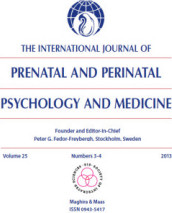An Exploration of Diverse Aspects of Health, Behavior, and Living Conditions: From Medical Interventions to Social and Political Influences
About Current Issue:
"An Exploration of Diverse Aspects of Health, Behavior, and Living Conditions: From Medical Interventions to Social and Political Influences"
Vol. 16, No. 1-2, 2025
Evolving Paradigms in Social Work: Investigating Emerging Theories and Practices
The Impact of Labelling on Roma Integrity
The Impact of Tele-education on the Mobilization of mothers post Cesarean Section
On the Problem of the Common Good and Paternalism in the Current Political Context
Monitoring the quality of the endoscopic reprocessing technique by a nurse in gastroenterology
Empirical Typology of the Realization of the personal Potential of gifted Adolescent Children
SUBSCRIBE TO OUR NEWSLETTER
ISSN 2076-9741/ONLINE
ISSN 2222-386X/PRINT
Indexed by:

Scientific Partners






